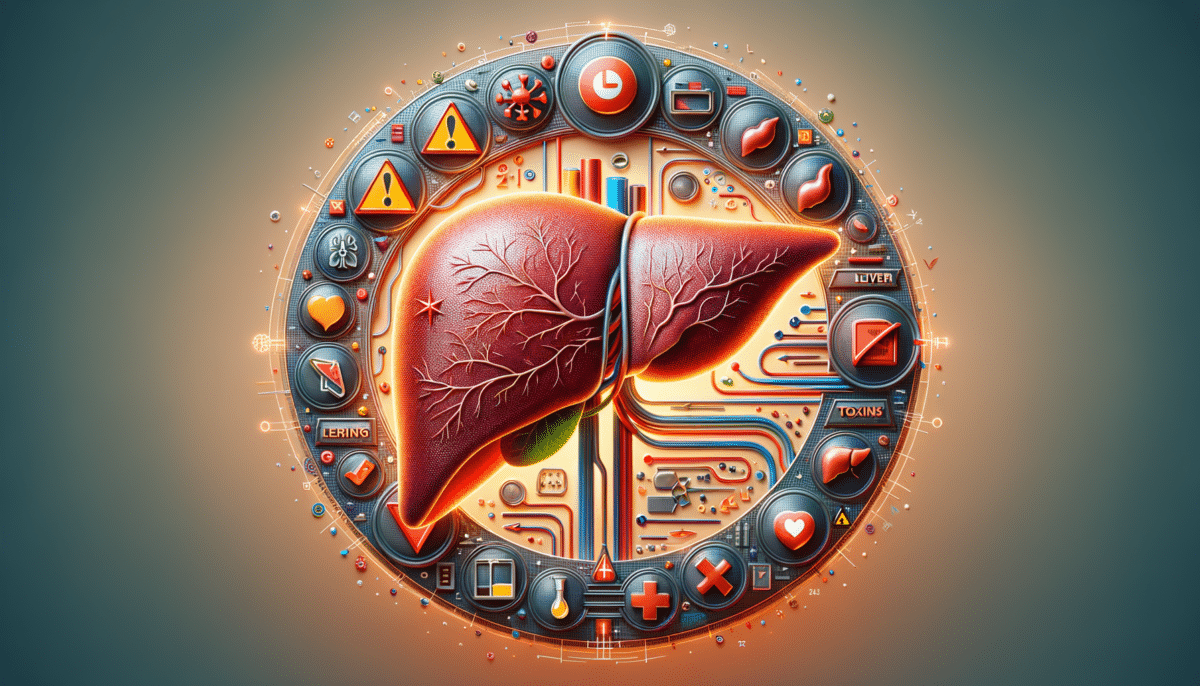Understanding the Role of the Liver
The liver is often dubbed the body’s natural detoxifier. As one of the largest organs, it performs a multitude of functions that are essential for maintaining good health. At the heart of its responsibilities is the filtration of blood coming from the digestive tract, before passing it to the rest of the body. This process helps in detoxifying chemicals and metabolizing drugs. The liver also produces bile, which ends up back in the intestines to aid digestion.
Moreover, the liver is responsible for making proteins important for blood clotting and other functions. It stores vitamins and minerals such as iron and releases them when the body needs them. The liver’s role in the regulation of blood glucose levels is also critical. It stores glucose in the form of glycogen, which can be converted back into glucose when the body needs energy.
Given these vital functions, the liver’s health is paramount. Without it working efficiently, toxins can build up in the body, leading to various health issues. Therefore, understanding the liver’s role helps appreciate its importance in overall wellness and the need for regular check-ups to ensure it functions optimally.
Common Signs of Liver Distress
Recognizing the signs of liver distress early can prevent more severe health issues down the line. Here are some common indicators that your liver may be struggling:
- Jaundice: A yellowing of the skin and eyes, indicating a buildup of bilirubin.
- Fatigue: Persistent tiredness can be a sign of liver malfunction.
- Dark urine: This can indicate excess bilirubin in the system.
- Swelling: Fluid retention in the abdomen and legs can signal liver issues.
- Itchy skin: This can be due to bile salts under the skin.
- Nausea or vomiting: Frequent nausea can be a symptom of liver distress.
If you experience any of these symptoms, it is essential to consult with a healthcare professional to determine the underlying cause and receive appropriate care.
Factors Affecting Liver Health
Several factors can influence liver health, ranging from lifestyle choices to genetic predispositions. Alcohol consumption is a well-known factor that can lead to liver damage over time. Excessive drinking can cause fatty liver, inflammation, and cirrhosis. Diet also plays a crucial role; high-fat diets can lead to non-alcoholic fatty liver disease (NAFLD), which is becoming increasingly common.
Additionally, certain medications and supplements can be harsh on the liver if taken in large amounts or over extended periods. It’s essential to follow dosage recommendations and consult with healthcare providers before starting new medications.
Genetics can also play a role in liver health. Conditions like hemochromatosis, where the body stores too much iron, can cause liver damage. Understanding these factors can help in taking preventive measures to maintain liver health.
Diet and Lifestyle Tips for a Healthy Liver
Maintaining a healthy lifestyle is key to supporting liver health. Here are some tips to help keep your liver in good shape:
- Limit alcohol consumption to reduce the risk of liver damage.
- Adopt a balanced diet rich in fruits, vegetables, whole grains, and lean proteins.
- Stay hydrated by drinking plenty of water.
- Engage in regular physical activity to maintain a healthy weight.
- Avoid high-fat, high-sugar, and processed foods that can burden the liver.
- Get vaccinated against hepatitis A and B if you are at risk.
These lifestyle changes can significantly impact liver health and overall well-being. Regular check-ups with healthcare professionals can also help in early detection and management of potential issues.
Conclusion: Prioritizing Liver Health
The liver’s role in detoxifying the body and maintaining overall health is undeniable. By understanding the signs of liver distress and the factors that affect liver health, individuals can take proactive steps to safeguard this vital organ. Adopting a healthy lifestyle, being mindful of alcohol consumption, and maintaining a balanced diet are all essential measures.
Regular medical check-ups can aid in early detection of liver issues, allowing for timely intervention and treatment. By prioritizing liver health, individuals can enhance their overall quality of life and reduce the risk of liver-related diseases. Remember, a healthy liver is a cornerstone of a healthy body.
